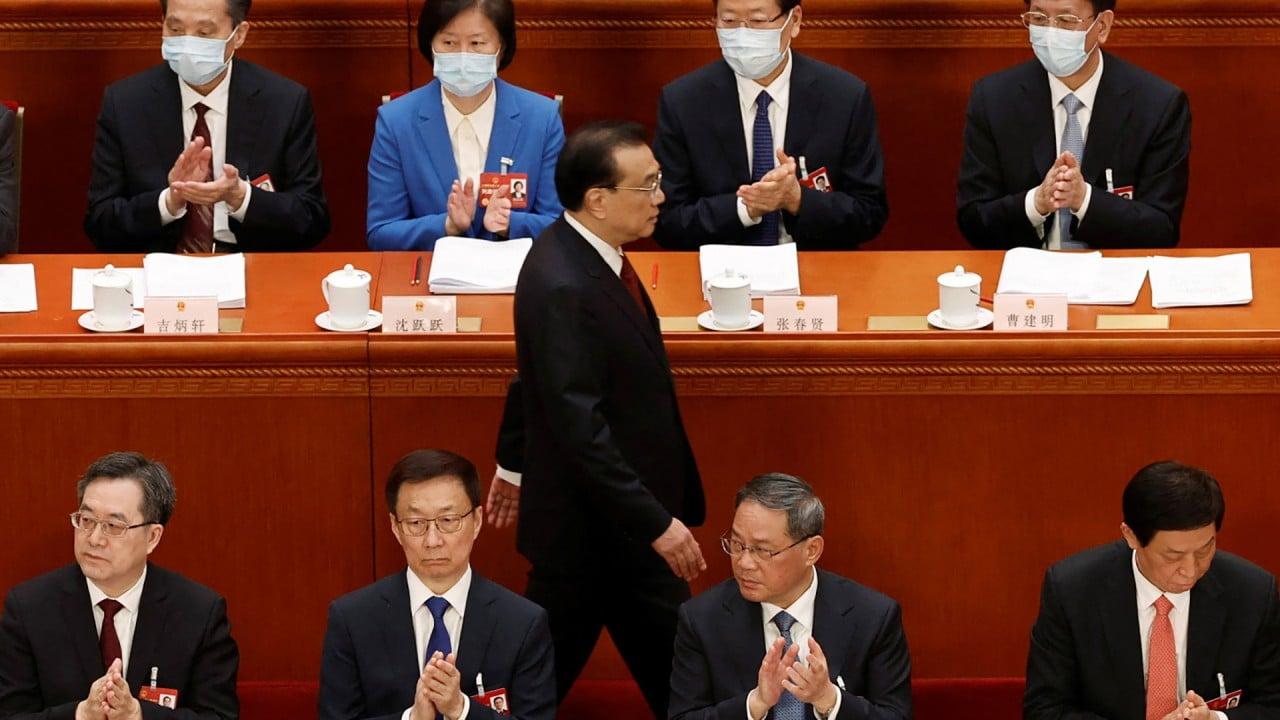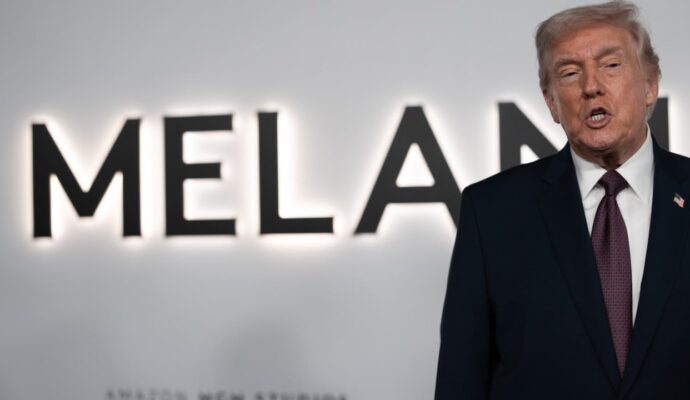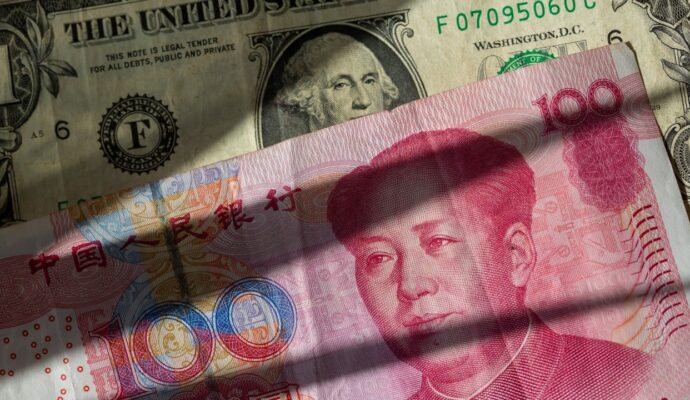
“We should help solve problems for private enterprises and private entrepreneurs, so that they can have a free hand and concentrate on [business] development without burden.
“It is necessary to strengthen ideological and political guidance, guide private enterprises and private entrepreneurs to … eliminate worries, lay down burdens and develop boldly.”
And all of these combined have amplified worries more than have abated burdens.
In his report to the 20th party congress in October, Xi similarly voiced “unwavering support” for the private economy, which accounts for more than 60 per cent of the national gross domestic product and more than 80 per cent of urban jobs.
The ongoing “two sessions” parliamentary gatherings often serve as an occasion for the top leadership to communicate their policy intentions or directions, especially when market confusion prevails.
For example, at a meeting with CPPCC members in 2016, Xi first brought forth the concept of cultivating a cordial and clean relationship between government and business. And three years ago, the “dual circulation” strategy of self-reliance was announced.
Further highlighting the importance of Monday’s conference, beyond Xi’s speech, was that three other members of the Beijing leadership’s highest decision-making body were in attendance – Politburo Standing Committee members Wang Huning, Cai Qi and Ding Xuexiang – as well as He Lifeng, who is expected to be named vice-premier in charge of finance.
Billionaire entrepreneurs in attendance included Geely Auto chairman Li Shufu, Chint Electrics chairman Nan Cunhui, and Robin Zeng, founder of Contemporary Amperex Technology, a global leader in batteries for electric vehicles.
Thinking that ‘actions speak louder than words’, they would like to see concrete steps or evidence before regaining confidence
Xi said his administration will help platform companies fully realise their job-creation capabilities, boost consumption and become more internationally competitive.
Meanwhile, technology companies were called on to strengthen independent innovation and play a greater role in what looks to be a years-long endeavour for China to become entirely self-reliant on critical technologies that must currently be imported.
On the precipice of his premiership, Li Qiang expressed support for the private economy at a separate meeting on Sunday, and he discussed the building of a market-oriented and law-based business environment, according to state media reports.
But for now, many businesspeople remain sceptical, according to Louis Kuijs, chief Asia-Pacific economist at S&P Global Ratings, noting that it takes longer to build confidence than to weaken it.
“Thinking that ‘actions speak louder than words’, they would like to see concrete steps or evidence before regaining confidence,” Kuijs said.
Beijing also acknowledged that the expectations of private investors and businesses are unstable, in its annual government work report.
Kuijs said Beijing should strive for a sustained period of relatively predictable policymaking, while focusing on efforts to create a level playing field.
“Organising some meetings between high-level policymakers and private-sector representatives would also help somewhat,” he added.
Zhao Xijun, a finance professor at Renmin University, said the task of boosting the private economy will be divided into more detailed plans and be allocated to specific government agencies for implementation after the conclusion of the annual political gala.
“The government’s thinking has already been revealed in the premier’s work report,” Zhao said.
Central authorities vowed in the work report to protect the property rights of private enterprises and the interests of entrepreneurs, to create a level playing field for business operations, and to attract more private capital into major state projects.
Lawmakers and political advisers also tabled a variety of suggestions, including for financing support, property-right protections, and even a crackdown on “statements that vilify and stigmatise private enterprises”.
Zhou Tongyu, an NPC delegate and chairwoman of semiconductor company Weida Hi-Tech, said that the central government should draft a law on private economy boost and establish an agency overseeing the affairs of private sectors.
In group discussions involving lawmakers from Zhejiang province, which has long been hailed as a national leader in private-economy development, many called for the protection of private interests in every facet of law enforcement, and to allow private players greater access to government procurements.
Additional reporting by Mia Nulimaimaiti


